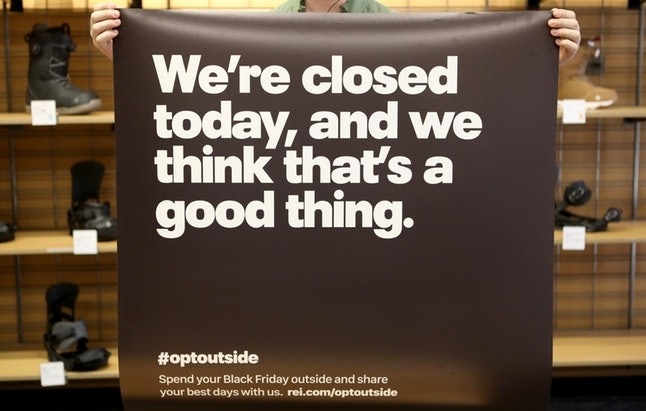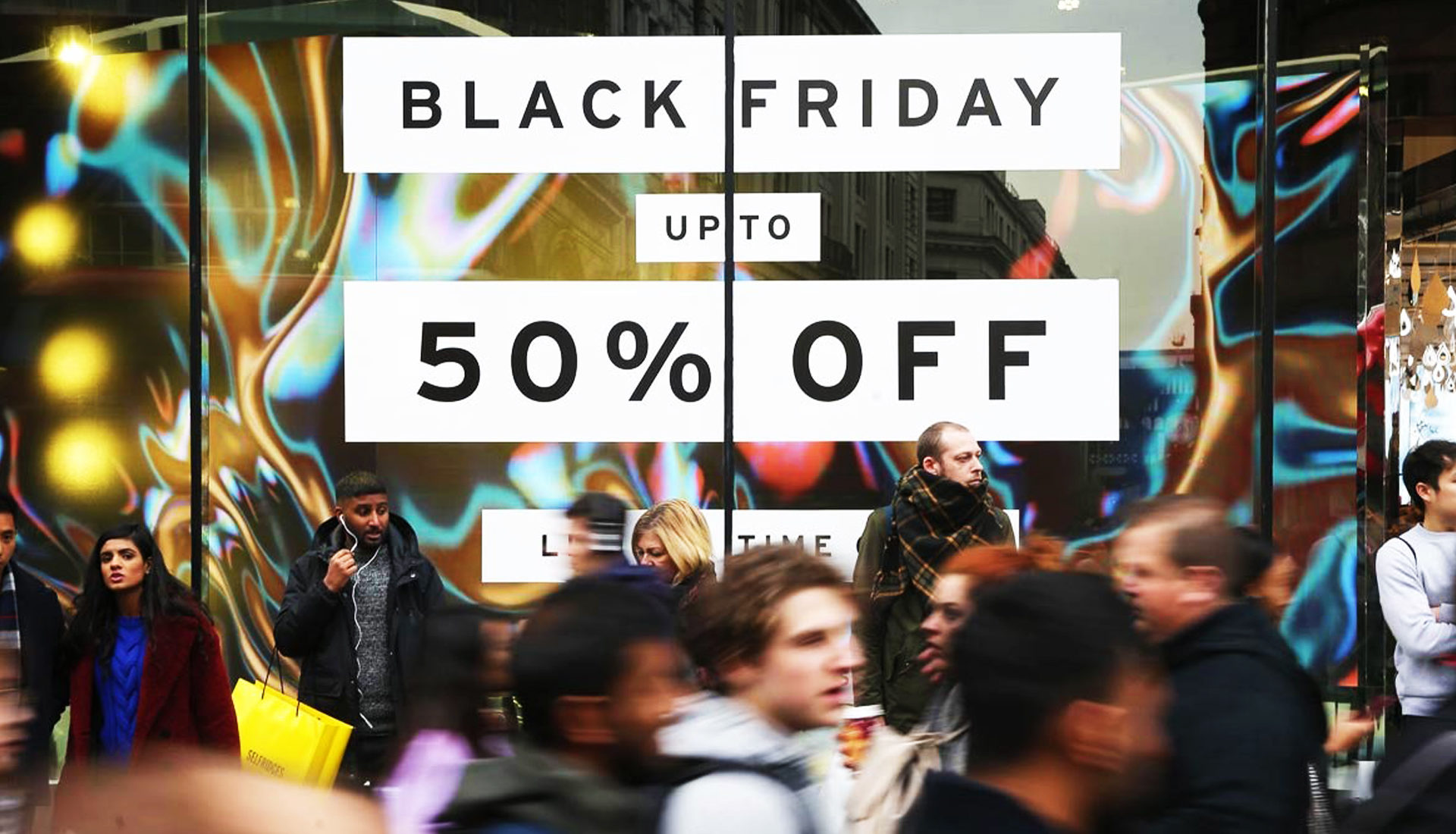As we approach the end of yet another manic Black Friday weekend, is it time we reevaluated this longstanding tradition of unnecessary spending and started striving to shop more consciously?
Walking through London last November, weaving through the hordes of Christmas shoppers and Black Friday bargain hunters, I came across a sign outside independent store Lone Design Club urging passersby to stop and think about the impact of unnecessary spending during the holidays. Don’t get me wrong, I too am a sucker for a good discount, but it got me thinking: given the current climate situation should we really still be encouraging such an extortionate level of mass consumption?
The same question still applies a year on, following months of pandemic-induced lockdowns and a subsequent monumental boom in online shopping. Though unsurprising that the world flocked to the Internet en masse as soon as government-imposed quarantines were put in place, many have criticised Amazon’s staggering growth as a direct result. Alongside an understandably heightened demand for goods, the company’s stock value has been boosted 80%, giving founder Jeff Bezos a jump in net worth by over $20 billion and leaving independent businesses in the dust.
Given the dubious ethics behind making the already-wealthy Bezos a whole lot richer, buying from Amazon is problematic for two reasons. For one, with reported surges amid the frenzy of Black Friday reaching $11,000 a second, a rising number of buyers are feeling uncomfortable about adding to Amazon’s dominance (no matter how handy next-day delivery might be).
Additionally, while Amazon’s convenience is obviously inherently appealing to consumers, the conglomerate’s impact on the environment is well on it’s way to becoming catastrophic – despite common belief that shopping online yields a smaller carbon footprint than ‘traditional’ retail.
‘Because some [companies] are offering really fast and rushed deliveries, that disintegrates the consolidation,’ explains a Vox video on the matter. ‘Every individual is buying more and wanting those goods to be at their home really fast. That creates more vehicles, more traffic, and potentially more emissions.’
I digress. With the rise in consumerism currently more noticeable than ever brands are starting to question the idea of commercial marketing opportunities like Black Friday and Cyber Monday, figuring it might be more lucrative to go against the grain. These events almost always result in scenes that bring out the worst in society, with crazed shoppers fighting over the best offers and scrambling for must-have products. Herein lies the controversial tendencies of Black Friday weekends. As thousands of people rush to invest in goods simply because of a seemingly ‘good deal’, it’s damaging our climate and increasing our carbon footprints in the process.
Every year, Black Friday weekend leads to a huge spike in sales and substantial increase in unused and unwanted purchases. Taking place the day after Thanksgiving to mark the beginning of the festive shopping season, what originated as a one-day event in America has now spread across the globe and lasts for longer, as companies attempt to get the most out of eager buyers.
Even the 12 reported deaths and 117 injuries caused by the shopping mayhem since 2006 hasn’t been enough to put people off. However, in the wake of Greta Thunberg’s inspiring UN speech and series of Extinction Rebellion protests insisting the government take action for the future of our planet, some brands have finally recognised that the environmental consequences of Black Friday are simply too detrimental to ignore.





















